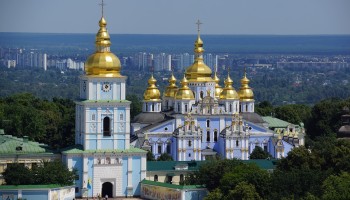Fifty-three percent of those polled for TI’s 2009 Global Corruption Barometer said they thought the private sector was corrupt or “extremely” corrupt – up from 45 percent of those polled by TI in 2004.
Around half the respondents said they were willing to pay more to buy from corruption-free companies. That number rose to as many as four in five respondents in Cambodia, Hong Kong, Liberia and Sierra Leone.
“These results show a public sobered by a financial crisis precipitated by weak regulations and a lack of corporate accountability,” said TI chair Huguette Labelle in a statement. “But we also see that the public is willing to actively support clean business.”
More than half the respondents – 56 percent – said they didn’t put much faith in their governments’ anti-corruption drives. In Argentina, Bulgaria, the Czech Republic, Hungary, Lithuania and Ukraine, fewer than one in 10 people polled thought their governments’ efforts were effective.
Most of those interviewed felt that existing anti-corruption programs are ineffective. Fewer than one in four respondents who reported paying a bribe in the previous year filed a formal complaint.
The poll, done between October 2008 and February 2009, took in the responses of more than 73,000 people in 69 countries and territories.
Critics of TI polls, including this poll and the annual Corruption Perception Index, note that the information is based on polls and perceptions rather than on solid desk research on corruption or bribery.
Court seizes part of Legija’s villa
A Belgrade court has seized part of a suburban villa belonging to Milorad Ulemek, who’s serving several 40-year prison terms for his part in the 2003 assassination of Serbia’s prime minister and other violent crimes.
In a temporary seizure order, the Belgrade Special Court seized 178 square meters (1,915 square feet), or about one-third, of the villa in the Belgrade suburb of Cerak. Ulemek’s wife and children will continue to live in the other two-thirds of the villa. The Serbian daily Danas reports that the house sprawls over 600 square meters (6,458 square feet) and is worth €1.08 million.
Ulemek is serving several consecutive maximum 40-year prison terms, one of them for being the key conspirator in the 2003 murder of Serbian Prime Minister Zoran Đinđic. Other sentences were in connection with the murder of a Serbian journalist, the attempted murder of a political leader, and kidnapping.
The prosecution is expected to file a motion for the permanent confiscation of the entire villa, which would make Ulemek the first example of the asset forfeiture law passed by parliament in March. Ulemek claims the villa was given to him by former security chief Jovica Stanišić; the prosecution suspects Ulemek paid for the house with ransom money he received after orchestrating the kidnapping of a Serbian underworld figure’s brother.
Since the law passed, police have started financial investigations of 280 people in six Serbian cities and towns, Serbian attorney general Slobodan Radovanović told the daily Blic. He said that in this first round, he expected the courts to confiscate property worth around €50 million.
Some possible subjects of financial investigation floated in the Serbian press are the wife and son of former president Slobodan Milosevic, and the widows of gangsters Dušan Spasojević and Mile Luković. By Beth Kampschror
Zelenskiy Vows to Eradicate Corruption in Ukraine
Rooting out Ukraine’s deeply-entrenched corruption is a top priority, Ukrainian president Volodymyr Zelenskiy said in a...





